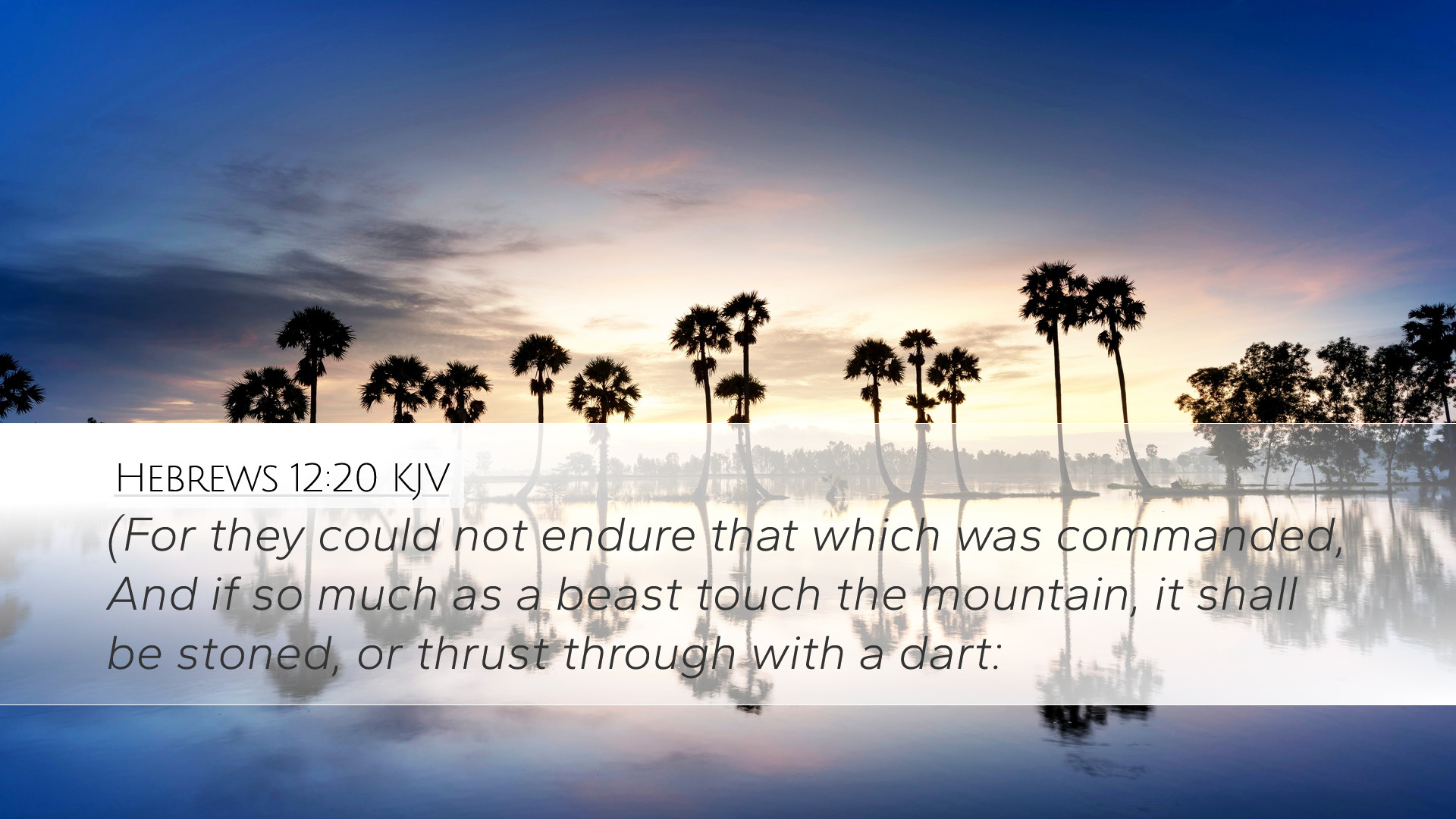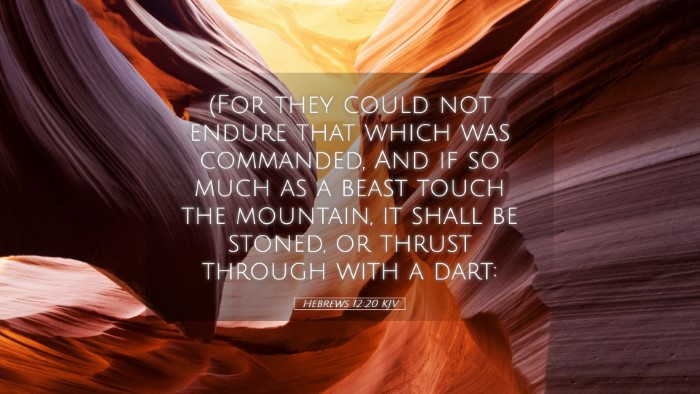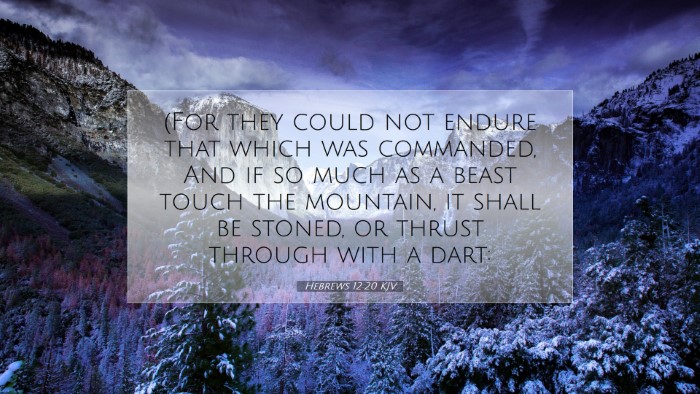Commentary on Hebrews 12:20
Hebrews 12:20 (KJV): "For they could not endure that which was commanded, And if so much as a beast touch the mountain, it shall be stoned, or thrust through with a dart."
Introduction
This passage is a crucial part of the theological foundation of the book of Hebrews, emphasizing the distinction between the Old Covenant, represented by Mount Sinai, and the New Covenant established through Jesus Christ. The author uses vivid imagery to convey the terror and the holiness associated with God's presence and the law given at Sinai.
Contextual Analysis
The entire argument of Hebrews centers on the supremacy of Christ and the new covenant He mediates. This verse occurs within a larger discussion on the nature of divine holiness and the stark contrast between the fear associated with Sinai and the joy of approaching Zion.
At Sinai, the law was given in a context of fear and trembling. The Israelites were warned to keep their distance; if even a beast touched the mountain, it would face severe consequences. This underscores the gravity of God's holiness and emphasizes the seriousness of breaking His commandments.
Insights from Public Domain Commentaries
Matthew Henry's Commentary
Matthew Henry emphasizes the dreadful experience of Israel at Sinai. He notes that the terror associated with the law was meant to instill a healthy fear of God, highlighting His absolute holiness. The fearful commands served to magnify the law, thus revealing humanity's inability to achieve righteousness through works.
Henry points out that the "beast" being stoned signifies that even the animals were not exempt from God's holiness. This serves as a warning of the severe consequences of transgressing divine boundaries.
Albert Barnes' Notes on the Bible
Albert Barnes elaborates on the notion that the Israelites, witnessing the unapproachable nature of God at Sinai, were acutely aware of their own sinfulness. He reflects on the way fear and dread dominated the atmosphere, leading the people to plead with Moses to be their mediator.
Barnes highlights the underlying message that without a mediator, one cannot directly approach the holiness of God. This foreshadows the role of Christ—as the ultimate mediator who removes the barriers that the law had erected.
Adam Clarke's Commentary
Adam Clarke focuses on the specific command regarding beasts touching the mountain. He suggests that this serves as a metaphor for human sin—just as a beast could not touch the mountain, so too, humanity, in its sinful state, cannot approach God without being consumed.
Clarke also recalls the theophany at Sinai, describing the physical manifestations of God's presence. He asserts that these representations were divinely ordained to foster a sense of awe that would point to the need for a greater revelation in Christ.
Theological Implications
-
The Holiness of God:
The passage underscores the absolute holiness of God and His unapproachable nature. The strict command surrounding the physical mountain reflects the seriousness of approaching God without adequate reverence.
-
The Fear of the Law:
The fear instilled by the law at Sinai acts as a pedagogical tool that reveals humanity's sinfulness. It emphasizes that the law, while holy, reflects humanity's incapacity to attain righteousness through it.
-
The Need for Mediation:
The restrictions at Sinai lead to the necessity of a mediator. In the New Covenant, Christ fulfills this role, offering direct access to God, free from the fear that characterized the Old Covenant.
Applications for Today's Believers
As believers today, we are called to approach God with reverence and awe, recognizing both His love and His holiness. This passage encourages us to appreciate the gift of grace that has been made available through Christ, who satisfies the requirements of the law on our behalf.
Furthermore, as we meditate on the fear of the Lord, we should cultivate a posture of humility, recognizing that our standing before God is not based on our works but solely on His mercy.
Conclusion
Hebrews 12:20 is a potent reminder of God's holiness and the profound implications of approaching Him. It serves as both a warning and an encouragement, calling us to honor the sacrifice of Christ, who has made a way for us to draw near without fear. In light of Christ's redemptive work, we should respond with awe, gratitude, and joy as we live out our faith.


